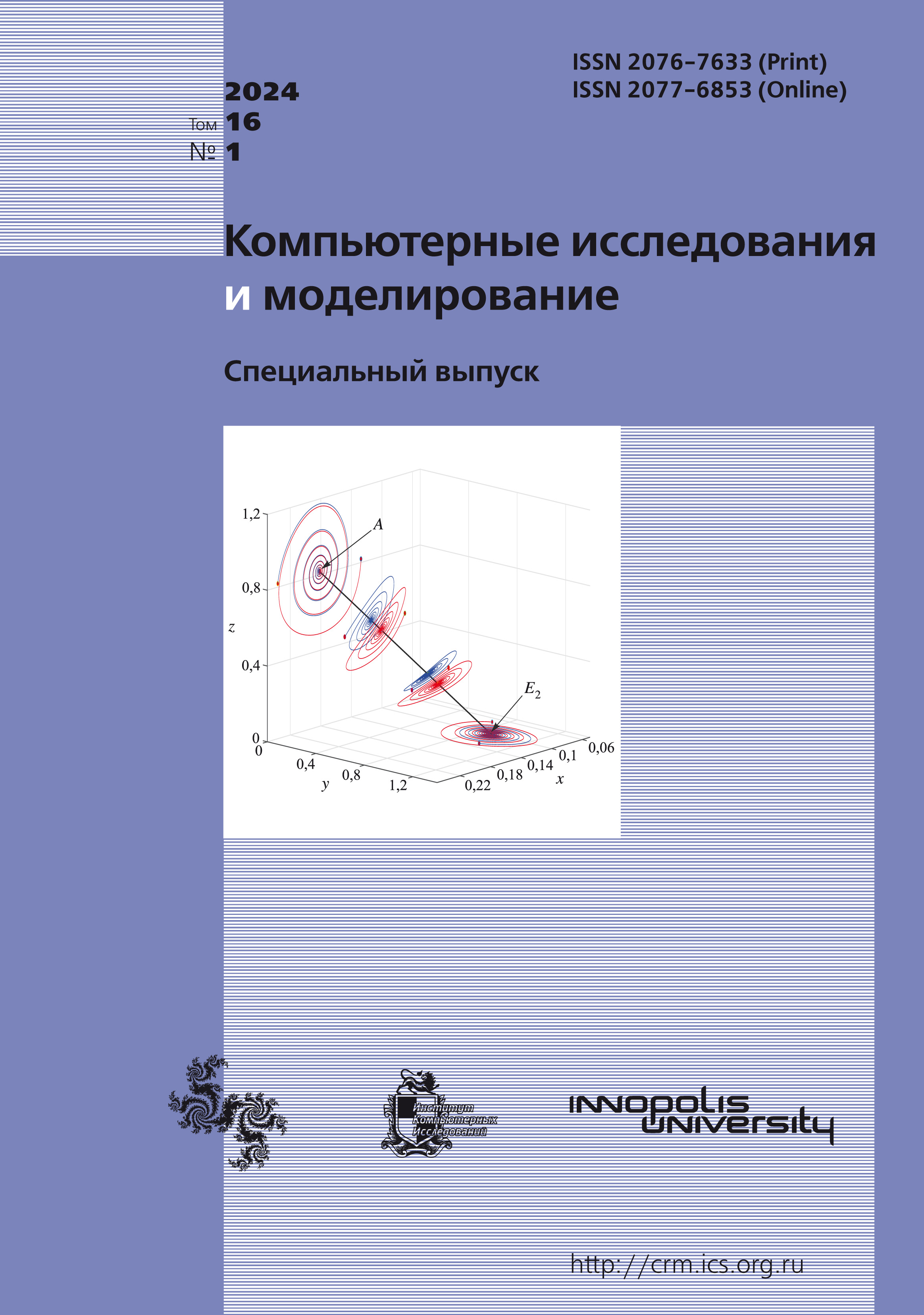All issues
- 2024 Vol. 16
- Issue 1 (special issue)
- 2023 Vol. 15
- 2022 Vol. 14
- 2021 Vol. 13
- 2020 Vol. 12
- 2019 Vol. 11
- 2018 Vol. 10
- 2017 Vol. 9
- 2016 Vol. 8
- 2015 Vol. 7
- 2014 Vol. 6
- 2013 Vol. 5
- 2012 Vol. 4
- 2011 Vol. 3
- 2010 Vol. 2
- 2009 Vol. 1
Subgradient methods with B.T. Polyak-type step for quasiconvex minimization problems with inequality constraints and analogs of the sharp minimum
 pdf (593K)
pdf (593K)
In this paper, we consider two variants of the concept of sharp minimum for mathematical programming problems with quasiconvex objective function and inequality constraints. It investigated the problem of describing a variant of a simple subgradient method with switching along productive and non-productive steps, for which, on a class of problems with Lipschitz functions, it would be possible to guarantee convergence with the rate of geometric progression to the set of exact solutions or its vicinity. It is important that to implement the proposed method there is no need to know the sharp minimum parameter, which is usually difficult to estimate in practice. To overcome this problem, the authors propose to use a step adjustment procedure similar to that previously proposed by B. T. Polyak. However, in this case, in comparison with the class of problems without constraints, it arises the problem of knowing the exact minimal value of the objective function. The paper describes the conditions for the inexactness of this information, which make it possible to preserve convergence with the rate of geometric progression in the vicinity of the set of minimum points of the problem. Two analogs of the concept of a sharp minimum for problems with inequality constraints are considered. In the first one, the problem of approximation to the exact solution arises only to a pre-selected level of accuracy, for this, it is considered the case when the minimal value of the objective function is unknown; instead, it is given some approximation of this value. We describe conditions on the inexact minimal value of the objective function, under which convergence to the vicinity of the desired set of points with a rate of geometric progression is still preserved. The second considered variant of the sharp minimum does not depend on the desired accuracy of the problem. For this, we propose a slightly different way of checking whether the step is productive, which allows us to guarantee the convergence of the method to the exact solution with the rate of geometric progression in the case of exact information. Convergence estimates are proved under conditions of weak convexity of the constraints and some restrictions on the choice of the initial point, and a corollary is formulated for the convex case when the need for an additional assumption on the choice of the initial point disappears. For both approaches, it has been proven that the distance from the current point to the set of solutions decreases with increasing number of iterations. This, in particular, makes it possible to limit the requirements for the properties of the used functions (Lipschitz-continuous, sharp minimum) only for a bounded set. Some computational experiments are performed, including for the truss topology design problem.
Indexed in Scopus
Full-text version of the journal is also available on the web site of the scientific electronic library eLIBRARY.RU
The journal is included in the Russian Science Citation Index
The journal is included in the RSCI
International Interdisciplinary Conference "Mathematics. Computing. Education"






